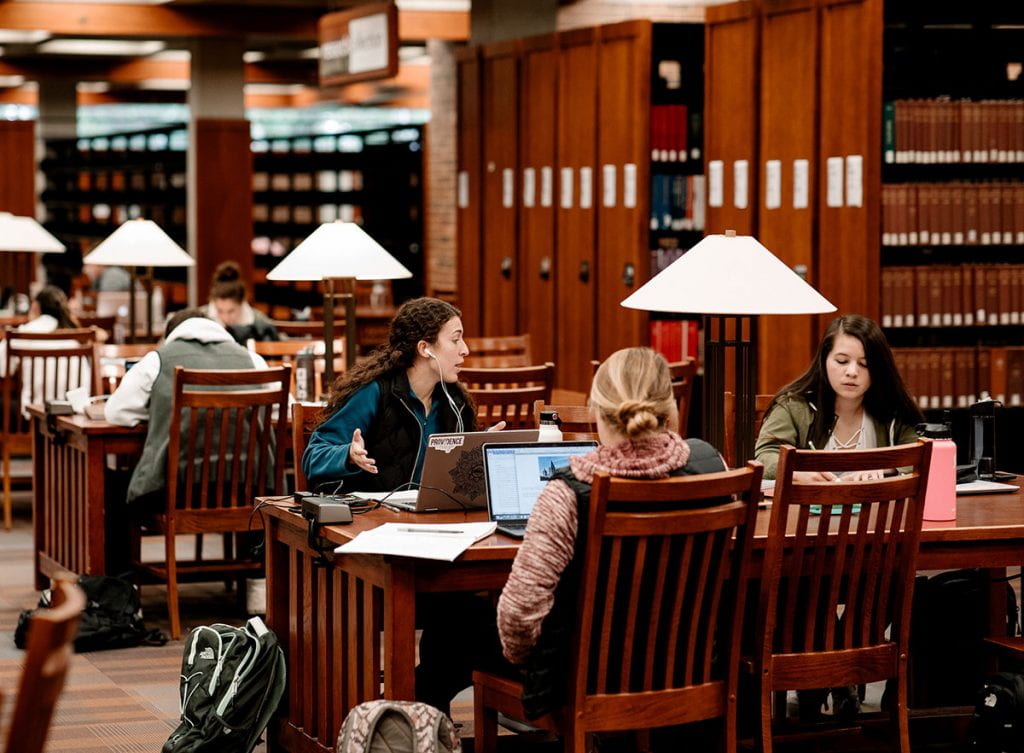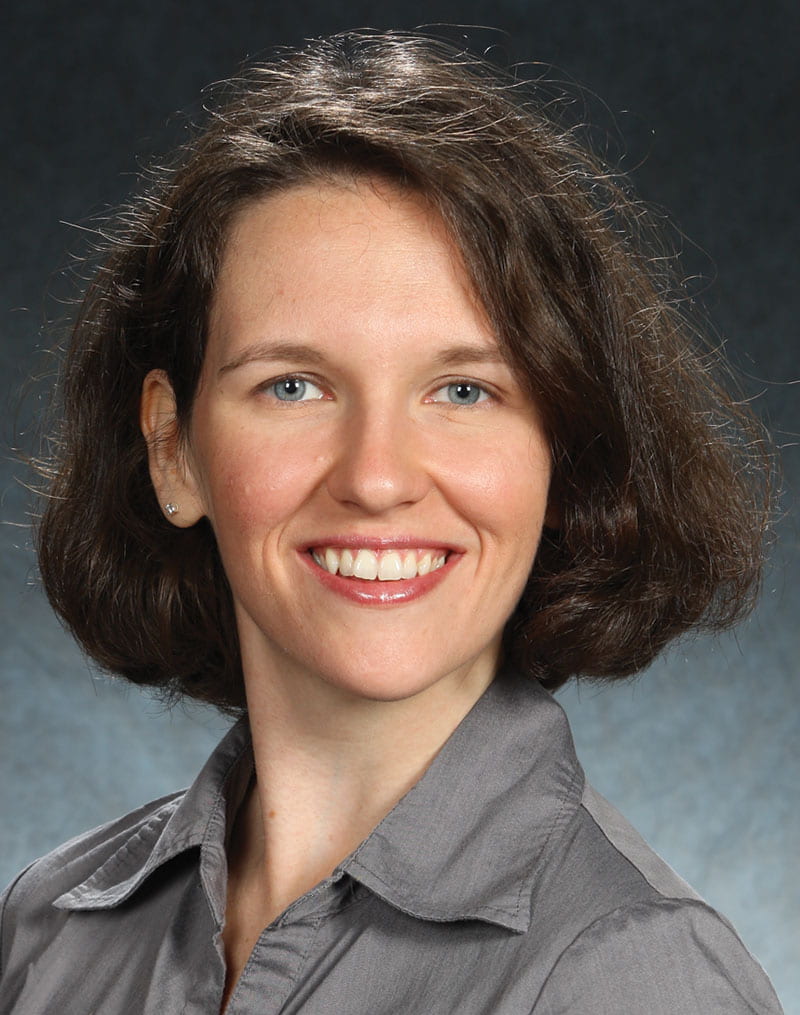Center for Engaged Learning leads charge on reflective practice
By Nick Wesman ’20G
This is the year of reflective practice at Providence College.
A new initiative spearheaded by the Center for Engaged Learning (CEL) encourages students and faculty to intentionally consider what and how they’re learning and growing throughout the 2019-20 academic year.
The CEL selected the theory of reflective practice as the inaugural theme for what it hopes will become an annual part of PC’s academics: integrating engaged-learning methods and techniques in the classroom.
The center, established in 2013, fosters meaningful academic inquiry and practice through supporting student research, creativity, scholarships, and fellowships. Dr. William P. Hogan, associate professor of English, guided the center through its first five years as its director, working to establish it as a vital element of PC’s academic and research life, and enhancing the prominence of the annual Celebration of Student Scholarship and Creativity.

Since its inception, the CEL has been invested in expanding its presence and impact throughout the College community. Dr. Jennifer Van Reet, associate professor of psychology and current director of the CEL, said it was important to her to continue building the center’s identity and “carve out a unique place on campus for it.” She views an annual theme as a novel way to raise awareness of its services, support its mission, and integrate engaged learning across disciplines and campus.
Out of that desire came the idea for the engaged-learning themes, and Van Reet saw the focus on reflective practice as the perfect foundation for the initiative.
“It felt like being targeted and focused was our path to success. We have pockets of expertise on campus where students are taught reflective practice as part of their course work. I wanted to bring that out to the rest of PC,” she said.
Reflective practice, or critical reflection, is based on the idea that simple exposure to new information or experiences does not automatically mean learning will occur. In order to truly learn, students should reflect critically on what they’ve taken in to connect new and existing information, challenge previously held ideas, and gain a deeper understanding of self.

“I noticed students floating along and being very passive. They take all their notes and they check all the boxes they think they need to be checking, but they’re not taking time to stop and deeply reflect about what’s happening, either in their lives or in the classroom,” Van Reet said.
In addition to working with and encouraging faculty to incorporate opportunities for student reflection in the classroom, the center is providing material support to meet those ends. It has curated a list of reflective practice-related resources on the center’s web page, available to both faculty and students.
Additionally, in order to meet financial needs that may arise from implementing reflective practice, the center has established a grant program that can assist faculty and staff with costs related to hosting guest speakers, conducting seminars, or taking trips that support reflective practice.
The CEL also has worked with the Center for Career Education and Professional Development to incorporate reflective practice strategies into its seminars on teamwork, effective feedback, and emotional intelligence.
Programming is another facet of the outreach related to this year’s theme. The first major presentation of the initiative will take place at the Provost’s Forum on Student Engagement, on Wednesday, Jan. 15, 2020, from 3:30 to 5 p.m. Dr. Carol Rodgers, associate professor of education at SUNY Albany, will speak and facilitate discussion on reflective practice.
As this is the first of the themed academic years, Van Reet is viewing this year as a pilot for the program. Aside from providing resources, grants, and events, the center will be busy tracking the progress and trials of the initiative.
“I’m a scientist, so I know we need to collect data,” she said.
Van Reet said the CEL will look at how much grant funding was used and how funds were spent. The center also will be interested in the variety of disciplines engaged in the initiative and how many people attended CEL-sponsored events.
But for the foreseeable future, students and faculty can expect to see elements of engaged learning specifically practiced in the classroom.
“A key way for students to actually be engaged in what they’re learning and take ownership of it is to intentionally reflect on what they’re learning and how it all fits together. We know that if students learn how to do this, they’re going to do so much better in their classes,” she said.





